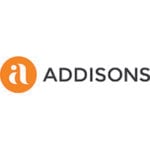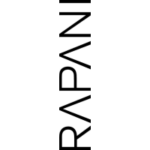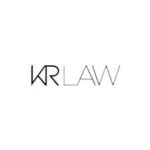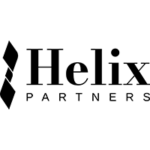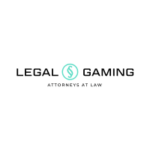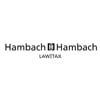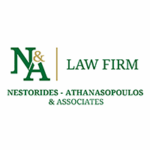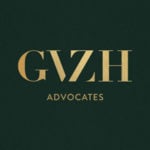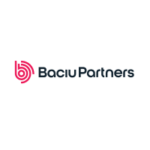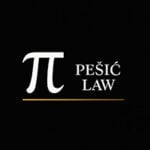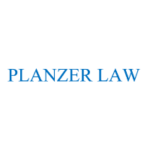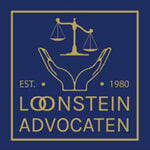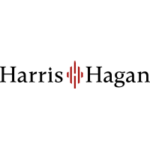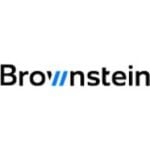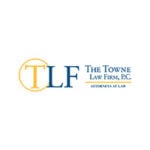-
What is the legal definition of gambling?
The Swedish Gambling Act (the ‘GA’) defines gambling with reference to the sub‑categories ‘lotteries, betting, combination gambling and pyramid schemes’, which are defined as follows:
- Lotteries: activities wherein the participant has a chance of winning a prize and the likelihood of winning depends on chance.
- Betting: activities wherein the participant has a chance to win a prize by placing a wager on the outcome of a future event or that a particular event will or will not occur in the future.
- Combination games: gambling where the participant has a chance of winning a prize and the likelihood of winning depends on a combination of skill and chance.
- Pyramid schemes: gambling where the winnings derive mainly from the bets of future participants and where the likelihood of winnings depends on the number of participants who subsequently join. Pyramid schemes are prohibited under the GA.
-
What legislation applies to gambling? Please provide a summary of the legal/regulatory framework.
The primary regulation of gambling is contained in the Swedish Gambling Act (2018:1138) and the Swedish Gambling Ordinance (2018:1475). The GA mandates the Swedish Gambling Authority (the ‘SGA’) and the government to issue secondary legislation on certain matters.
Additional relevant provisions are found in the Gambling Tax Act (2018:1139), the Anti-Money Laundering Act (2017:630), the EU General Data Protection Regulation (the ‘GDPR’) and the Swedish Supplementary Act (2018:218), the Payment Services Act (2010:751), the Marketing Act (2008:486), and the Consumer Services Act (1985:716).
-
Which body/ies regulate gambling?
The SGA is responsible for supervising compliance with the GA and related secondary legislation as well as any conditions of licences and permits issued by it. Its responsibility also extends to ensuring compliance with the Anti-Money Laundering Act on the gambling market. Advertising of gambling is supervised by the Swedish Consumer Authority and the Consumer Ombudsman, together with the SGA. The Swedish Authority for Privacy Protection supervises the processing of personal data related to gambling operations, while tax-related matters are supervised by the Swedish Tax Agency.
-
Are licences available? If so: a) What is the duration of a licence? b) What types of licences are available? c) Are there different types of licences for B2C and B2B operators? d) Do software suppliers need to be licensed?
a. What is the duration of a licence?
Licences are generally issued for a term of five years, but may be issued for shorter periods, particularly where the licensee’s financial circumstances warrant a shorter licence period.
b. What types of licences are available?
Six types of licences are available:
State-run gambling
Can only be obtained by wholly, directly or indirectly, state-owned companies and covers token gambling machines not located on vessels in international traffic and certain types of lotteries (e.g., scratch cards).
Gambling for public benefit
Can only be obtained by public benefit associations or registered religious communities whose main purpose is to benefit the public and covers certain types of lotteries, i.a., local pool games on horses and land-based bingo.
Commercial online gambling
Can be obtained by any individual or entity and covers online casinos, online bingo and computer-simulated gambling machines, as well as certain pot-based lotteries offered as a side bet to games covered by the licence.
Betting
Can be obtained by any individual or entity and covers both online and land-based betting, as well as numbers game lotteries offered as a side bet to games covered by the licence or a lottery to determine the winners of bets made on interrupted events.
Commercial land-based gambling
Can be obtained by any individual or entity and covers casino games offered at hotels and restaurants with an alcohol licence and amusement parks, goods gambling machines at public fairs, and card game tournaments.
Gambling on vessels in international traffic
Can be obtained by any individual or entity and covers cash and token gambling machines, casino games and card game tournaments on vessels in international traffic.
c. Are there different types of licences for B2C and B2B operators?
Yes. Persons who manufacture, maintain, install and/or modify gambling software must obtain a permit. Gambling software refers to software specifically designed for use in licensed online gambling, e.g., random number generators or streaming solutions for live casinos. Software designed for ancillary activities such as marketing or customer management does not require a permit. Operators on the Swedish market are restricted to only use gambling software from permit holders.
In addition, agents involved in selling games, receiving bets or conveying winnings on behalf of a licensee must be registered with the SGA and persons in possession of gambling machines on behalf of a licensee must apply for an individual permit.
d. Do software suppliers need to be licensed?
Yes, see item 4(c).
-
Are any types of gambling products prohibited?
An operator is only allowed to offer gambling permitted under a licence. Consequently, all gambling products not covered by a licence type (as described under item 4 above) are prohibited. Notably, as of 1 January 2026, full scale land-based casinos will not be covered by any available licence and consequently prohibited. Explicitly prohibited gambling products further include spread betting, betting on events where the majority of the participants are under 18 years old, betting on events that may be perceived as offensive or, from the perspective of the public, inappropriate (e.g., blood sports with animals), and pyramid schemes.
-
What is the headline application procedure? Please include any eligibility and other application requirements, including approximate application costs and any need to establish a local presence.
Eligibility criteria
The key requirements for obtaining a licence include:
- Knowledge, experience, and organisation. The SGA assesses the capacity of the applicant in terms of personnel, management, routines and other organisational resources and whether they are sufficient for the planned operations. The personnel’s knowledge of the gambling service is important and the SGA considers aspects like training and experience of similar operations. The availability of technical personnel capable of ensuring a safe gambling environment is especially important.
- Compliance. The applicant must be presumed to run the operations in accordance with law and other regulation. The requirement mainly pertains to gambling regulation, but also other areas, such as accounting and tax.
- General suitability. The applicant must in other respects be fit to run the operations and the SGA may consider the applicant’s reputation and professionalism, whether its funds are sufficient and other financial considerations. The requirement also applies to legal persons and individuals who have a qualified ownership in the applicant (e., direct or indirect ownership of 10 per cent or more of the shares or votes or that otherwise can exercise a significant influence over the management of the applicant), board members or members of management.
An applicant must be over 18 years old (if an individual), not be bankrupt, have legal capacity, not have committed serious offences or previously failed to fulfil its business obligations to a substantial extent. These requirements also apply to board members, members of management and persons with qualified ownership (as defined above).
As a general rule, gambling systems must be located in Sweden, however, if an operator is permitted to offer gambling in another country where its gambling system is monitored by a public authority which has an agreement with the SGA (currently Gibraltar, Malta, the Netherlands, and the UK) gambling systems may be located in such country. Gambling systems may also be located abroad if the operator gives remote access to the SGA, enabling the authority to monitor the system in a satisfactory manner.
A licensee who has no residence or establishment in a country within the European Economic Area must have a representative (which needs to be an individual) residing in Sweden (the same applies to holders of permits for gambling software).
Application process and documents
Application forms are available on the SGA’s website and include instructions and information on required supporting documentation. Applications must be completed in Swedish and all supporting documentation translated.
Board members, members of management and persons with a qualified ownership (as defined above) must be disclosed in the application process, submit a separate form and the following supporting documents:
- Individuals: a certified passport copy, copies of criminal records from all countries of residency from the past ten years and a resume of relevant experience.
- Legal persons: a certificate of registration (or equivalent) and the latest annual report.
After obtaining a licence, the licensee must report any changes to this group of persons within 14 days from the decision that triggered the change.
The required supporting documentation varies between different licences, but for online gambling and betting licences it includes:
- certificate of registration (or equivalent);
- description of the operations, including the scope of the operations, owner/group structure, overview of the operations structure, description of key personnel, their functions and competence;
- financial documentation including annual reports and the financing plan;
- documentation proving that the operations meet the technical requirements of the regulation; and
- a power of attorney.
The applicant’s gambling systems, enterprise resource planning and procedures must be assessed and certified by a body that is accredited for the task and renewed every 12 months, which is the Swedish Board for Accreditation and Conformity Assessment in Sweden.
Fees
The application and annual fees for licences available to commercial operators are set out in the table below.
Licence/permit Application fee (SEK) Annual fee (SEK) Commercial online gambling 230,000 264,000 Betting 230,000 264,000 Commercial land-based casino games 25,000 (individuals) 80,000 (legal persons)
plus 3,000 for each venue (not applicable to vessels)
Less than or equal to 5 venues: 3,000
6-10 venues: 20,000
11-100 venues: 40,000
More than 100 venues: 850,000(not applicable to licences for vessels for which the annual fee is 6,000 per vessel)Licence for cash, token or goods gambling machines 25,000 (individuals) 80,000 (legal persons)
plus 3,000 for each venue (not applicable to vessels)
Goods gambling machines: 3,000 (not applicable to licences for vessels for which the annual fee is 6,000 per vessel)
Card game tournaments 25,000 (individuals) 80,000 (legal persons)
30,000 (holders of a licence for betting or online gambling)
plus 3,000 for each venue
– Gambling software 120,000 16,500 Permit for cash, token or goods gambling machines 4,000 – If an applicant applies for both online gambling and betting licences at the same time it only needs to pay one application fee.
-
Do individuals within the business need to be personally licensed or authorised? If so, please provide headline requirements.
Individuals, including board members and members of management, are not required to be personally licensed or authorised under the GA. However, as described in item 6, an applicant is required to disclose all board members, members of management and persons with a qualified ownership (as defined above) in the application process.
-
Is advertising of gambling permitted and, if permitted, how is it regulated?
Advertising of gambling is permitted, but a degree of moderation is required. Advertisements may not target people under the age of 18, individuals who have suspended themselves from gambling or individuals who have closed their accounts with the operator, unless the individual has actively consented to receiving advertisements in connection with closing their account.
Advertising of gambling must include information on the minimum age of gambling and, in commercial contexts, include contact information of an organisation that provides information on, and support for, gambling problems.
In case of minor breaches, the Consumer Ombudsman may issue prohibitive injunctions with a conditional fine. For violations against the prohibition of direct advertising to self-suspended players or players who have closed their accounts without consenting to direct advertising, the Consumer Ombudsman may seek a penalty fine before the Swedish patent and market courts. Penalty fines are set at a minimum of SEK 10,000 and a maximum of 4 per cent of the operator’s turnover in the financial year preceding the violation.
In case of telemarketing, the licensee is required to inform the consumer about the identity of the licensee, the purpose of the conversation and the name of the person in contact with the consumer and their relationship to the licensee. After the contact, any offer must be provided in a document or another legible and durable form and can only be agreed to if the consumer accepts the offer in writing after the conversation.
-
Are marketing affiliates permitted? If so, are they licensed or regulated?
Marketing affiliates are not specifically regulated and therefore permitted as long as the marketing activities comply with the regulation on advertising of gambling and the marketed operators are licenced.
-
What are the penalties for offering, facilitating or marketing unlawful gambling, and can the gambler be penalised for participating in unlawful gambling?
To intentionally or by gross negligence offer unlawful gambling or to promote participation in such offering are criminal offences carrying a maximum sentence of two years’ imprisonment or a fine. Promoting participation includes e.g., marketing of unlawful gambling. There is no sentencing in minor cases. In aggravating circumstances, both offences carry a sentence of a minimum of six months and a maximum of six years’ imprisonment.
Individual players are not prosecuted for participating in unauthorised gambling.
-
Briefly detail key requirements for licensees.
To intentionally or by gross negligence offer unlawful gambling or to promote participation in such offering are criminal offences carrying a maximum sentence of two years’ imprisonment or a fine. Promoting participation includes e.g., marketing of unlawful gambling. There is no sentencing in minor cases. In aggravating circumstances, both offences carry a sentence of a minimum of six months and a maximum of six years’ imprisonment.
Individual players are not prosecuted for participating in unauthorised gambling.
-
Briefly detail key anti-money laundering requirements.
The Anti-Money Laundering Act covers all gambling under a licence issued under the GA and requires, i.a., operators to continuously conduct risk-based assessments of their business activities, implement documented risk-based internal procedures for measures against money laundering and terrorism financing and adjust when necessary, continuously risk-classify and conduct customer due diligence, and continuously monitor and report any suspicions to the Swedish Financial Intelligence Unit.
Licensees must conduct customer due diligence both at registration and on a continuous basis. Additional due diligence is required in the event of single or multiple related transactions together amounting to EUR 2,000 or more.
-
Briefly detail key responsible gambling (or safer gambling) requirements.
The GA imposes a duty of care on all operators, requiring them to actively prevent excessive gambling through continuous monitoring of gambling behaviour, present an action plan on their fulfilment of the duty of care and educate management and personnel. In addition, operators are authorised to process personal data on players’ health and finances to take necessary measures against excessive gambling.
Operators are further required to offer players the option to exclude themselves from gambling for a set time period or until further notice (minimum 12 months) by entry into a suspension registry which must be integrated with all operators’ platforms. Other provisions include prohibitions on extending credit to players, limitations on bonus offers, requirements on offering self-assessment tests, information requirements for games (including the likelihood of winning), limitations on game design, and requirements for players to actively specify and confirm stakes and maximum limits for deposits.
-
Briefly detail shareholder reporting and approval threshold(s).
Legal entities and individuals who have a qualified ownership in the applicant (as defined above), must be disclosed in the application process and any changes must be reported to the SGA within 14 days from the decision that triggered the change.
-
Briefly detail the regulator’s enforcement powers, including sanctions.
If a licensee or permit holder fails to comply with its obligations under the GA, secondary legislation or other conditions issued pursuant to the regulation, the SGA may order the licensee or permit holder to rectify, decide on prohibitive injunctions, modify conditions of the licence or permit or decide on reprimands. If the infringement is serious, a licence or permit can be revoked, or, alternatively, a warning can be issued if it is deemed sufficient.
A reprimand or warning may be accompanied with a fine. Fines are set at a minimum of SEK 5,000 and a maximum of 10 per cent of the operator’s net turnover in the preceding financial year. Only turnover derived from activities licensed or authorised under the GA is included in the basis.
For violations of the Anti-Money Laundering Act, the SGA may order the licensee to rectify, or if the non-compliance is serious, repeated or systematic, issue a cease-and-desist order, or revoke the licence. The SGA may also issue a warning if deemed sufficient and accompany it with a fine.
-
What is the tax rate?
Commercial licensed gambling operations are taxed at a rate of 22 per cent based on bets placed less payments to players. For online gambling this includes all players residing in Sweden and for land-based gambling all games offered on Swedish territory.
-
Are there any proposals for changing gambling laws and regulations in the next 12-24 months? If so, please provide an overview of the proposed changes and likely timing.
In September 2025, the government published a government bill proposing to prohibit licensees and gambling agents from accepting or contributing to gambling financed by credit, for example through credit cards or third-party services. The government bill also proposes that licensees and gambling agents must take appropriate measures to prevent gambling financed through credit. This proposal extends the existing prohibition in GA, which currently provides that licensees and gambling agents may not offer or grant credit to players. The proposals are suggested to enter into force on 1 April 2026.
The Swedish regulator also continues to work towards channelling all gambling activity in Sweden to licensed operators. In February 2025, the Ministry of Finance appointed an inquiry to review and clarify the scope of the GA in order to effectively enforce the legislation on unlicensed operators. The GA currently applies to all operators which are deemed to direct their online gambling towards the Swedish market, e.g., by the website being available in Swedish or accepting payments in Swedish krona. The result of the review was published in a ministry memorandum in September 2025, in which it is proposed to expand the scope of the GA by replacing the current direction criterion with a participation criterion. This would entail that the decisive factor is whether individuals located in Sweden can take part in the gambling offered. Consequently, operators without a Swedish licence would have to implement effective measures to prevent individuals located in Sweden from accessing their websites, e.g., by blocking Swedish IP addresses through geo-blocking.
The ministry memorandum further proposes to expand the prohibition on promoting illegal and unlicensed gambling. The current prohibition only applies to providers of financial and administrative services if their service is specifically designed for gambling operators and enables the operators to provide gambling to players. In the ministry memorandum, it is suggested to extend the prohibition to cover all financial and administrative services if the service is intended to enable gambling operators to provide gambling to players and the service provider is aware of the operator’s intention to use the service in connection with unlawful gambling in Sweden – regardless if the service is specifically designed for gambling operators or not. In addition, the ministry memorandum proposes that payment service providers offering their services to operators conducting gambling which is unlawful or not licensed in Sweden must presume that gambling takes place from within Sweden if the player is resident or habitually resident in Sweden. The aim is to facilitate enforcement of the prohibition on promoting unlawful gambling on payment service providers by removing the need to determine whether the gambling took place in Sweden or not. The proposals are suggested to enter into force on 1 January 2027.
-
What key regulatory developments are proposed or on the horizon in the next 12-24 months?
The current main focus for the legislator and the SGA appears to be channelling all gambling on the Swedish market to licensed operators. In April 2025, SGA published a report on online gambling with unlicensed operators on the Swedish market. In the report, the SGA calls for an expanded scope of the GA (as described under item 17 above) to enable it to effectively combat unlicensed online gambling and states that it will propose possible legislative changes to provide the authority with additional tools to combat unlicensed online gambling.
-
Do you foresee any imminent risks to the growth of the gambling market in your jurisdiction?
Historically, Sweden has been conservative in its regulation of gambling. Before the enactment of the GA in 2019, offering gambling on the Swedish market was, in principle, reserved only for state-owned entities or public benefit associations. This political heritage and the legislator’s focus on ensuring safe gambling and minimising gambling’s potential harmful effects may entail an unpredictable regulatory landscape and legislative changes where commercial objectives and aims are secondary.
-
If a gambling start-up was looking for a jurisdiction in which to commence its activities, why would it choose yours?
The Swedish market is a well-regulated market with a legislator actively working towards, and largely succeeding, in channelling all gambling towards licensed operators. The SGA estimates that the net turnover of the Swedish commercial online gambling market amounted to approx. BSEK 17.4 in 2024, of which 85 per cent is estimated to have been conducted with licensed operators.1
Further, due to the proliferation of successful technology and software companies, including in particular gambling companies, there is an active, well-established and internationally attractive entrepreneurial community. Start-ups can thus take advantage of an attractive pool of highly educated and skilled professionals as well as a well-developed infrastructure.
Footnote(s):
1 Spelinspektionen, Kanaliseringsgrad på den svenska spelmarknaden 2024, ref. no. 25Si244, 1 September 2025 and Spelmarknaden, kvartalsstatistik år 2024.
Sweden: Gambling Law
This country-specific Q&A provides an overview of Gambling laws and regulations applicable in Sweden.
-
What is the legal definition of gambling?
-
What legislation applies to gambling? Please provide a summary of the legal/regulatory framework.
-
Which body/ies regulate gambling?
-
Are licences available? If so: a) What is the duration of a licence? b) What types of licences are available? c) Are there different types of licences for B2C and B2B operators? d) Do software suppliers need to be licensed?
-
Are any types of gambling products prohibited?
-
What is the headline application procedure? Please include any eligibility and other application requirements, including approximate application costs and any need to establish a local presence.
-
Do individuals within the business need to be personally licensed or authorised? If so, please provide headline requirements.
-
Is advertising of gambling permitted and, if permitted, how is it regulated?
-
Are marketing affiliates permitted? If so, are they licensed or regulated?
-
What are the penalties for offering, facilitating or marketing unlawful gambling, and can the gambler be penalised for participating in unlawful gambling?
-
Briefly detail key requirements for licensees.
-
Briefly detail key anti-money laundering requirements.
-
Briefly detail key responsible gambling (or safer gambling) requirements.
-
Briefly detail shareholder reporting and approval threshold(s).
-
Briefly detail the regulator’s enforcement powers, including sanctions.
-
What is the tax rate?
-
Are there any proposals for changing gambling laws and regulations in the next 12-24 months? If so, please provide an overview of the proposed changes and likely timing.
-
What key regulatory developments are proposed or on the horizon in the next 12-24 months?
-
Do you foresee any imminent risks to the growth of the gambling market in your jurisdiction?
-
If a gambling start-up was looking for a jurisdiction in which to commence its activities, why would it choose yours?
